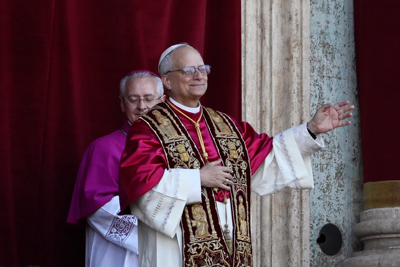
Vatican City – May 2025
In a moment marked by reverence and global anticipation, white smoke rose over St. Peter’s Basilica last week as the College of Cardinals announced the election of the 268th pontiff in the history of the Roman Catholic Church: Pope Leo XIV.
Born Cardinal Giovanni Battista Romano in Naples, Italy, the 71-year-old theologian and advocate for interfaith dialogue brings with him a reputation for intellectual rigor, humility, and a pastoral approach rooted in compassion. As he stepped out onto the central balcony of the Vatican, greeting the world with the traditional “Habemus Papam,” the crowd of tens of thousands in St. Peter’s Square erupted into joyful applause.
A Bridge Between Tradition and the Future
Pope Leo XIV is widely seen as a centrist figure, someone able to build bridges between the Church’s more traditional and reformist factions. His election follows a conclave focused on charting a clear course for the Church in a rapidly changing world — from climate change to artificial intelligence, from declining church attendance in the West to the rise of Catholicism in the Global South.
In his first public address, the new Pope called for “a Church not afraid to listen, to reconcile, and to accompany all people in their search for truth and mercy.” His message was clear: unity without uniformity, compassion without compromise.
A Lifetime of Service
Before his elevation, Leo XIV served as Archbishop of Milan and was later appointed head of the Congregation for the Doctrine of the Faith — a role once held by Pope Benedict XVI. But unlike some of his predecessors, Cardinal Romano was known for a gentler tone, encouraging theological inquiry and dialogue with scientists, philosophers, and other faith leaders.
He played a key role in the Vatican’s 2022 statement on environmental stewardship, calling climate care a “sacramental responsibility” and urging Catholic institutions to divest from fossil fuels. Fluent in five languages and a scholar of St. Augustine, Leo XIV is as comfortable in a seminary lecture hall as he is visiting displaced refugees in conflict zones.
First Decisions Signal New Priorities
In one of his first acts as pontiff, Pope Leo XIV announced the creation of a new papal commission on digital ethics — a bold move to address the moral dimensions of technology, including artificial intelligence, surveillance, and online misinformation.
He has also pledged to continue his predecessor’s efforts to address clerical abuse with greater transparency, meeting personally with survivor groups just days after his election. The move was seen by many as a powerful sign of a Pope committed to accountability.
A Symbolic Name
The choice of the name “Leo” is significant. The last pope to use it was Leo XIII, known for his groundbreaking social teachings in the 19th century — including Rerum Novarum, which addressed the rights of workers in the industrial era. By choosing the name Leo XIV, the new pope signals a commitment to social justice, peace, and moral leadership in the face of modern challenges.
A Church on the Move
As the bells of St. Peter’s continue to ring, Catholics around the world are beginning to learn more about their new spiritual leader. From the slums of Manila to the cathedrals of Europe, the faithful are praying for guidance, courage, and renewal.
For many, Pope Leo XIV represents hope — a shepherd ready to lead not just by doctrine, but by example, through listening, dialogue, and unwavering faith.





